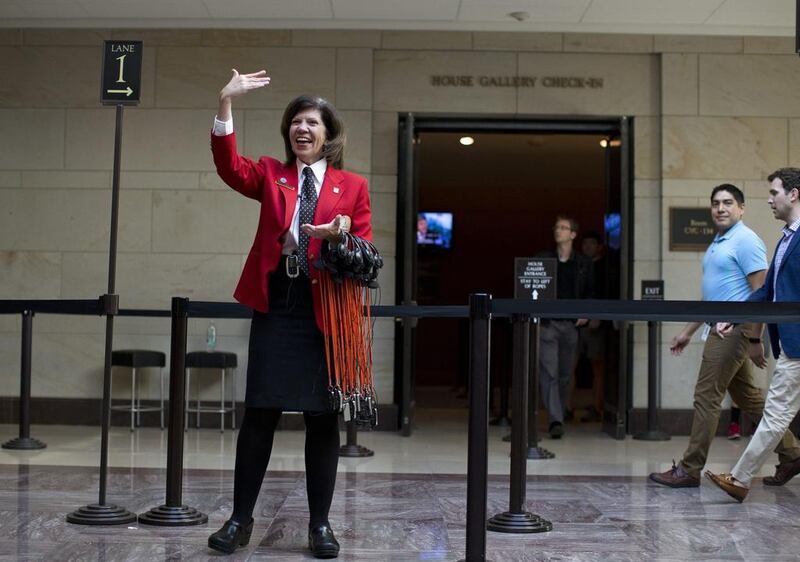New York // An eleventh-hour deal in the US Congress avoided a catastrophic debt default by the world’s largest economy, but the short-term measure did little to address the cycle of domestic crises over Washington’s budget that has damaged its global standing and will likely have lasting effects.
The deal, approved on Wednesday night by Congress less than two hours before the US would have breached its debt limit, also ended a 16-day federal government shutdown. But it only extended borrowing through early February and the funding of government until January 15, raising the prospect of another debilitating budget battle in a matter of months.
Yesterday, US President Barack Obama said the crisis was a wake-up call against the “strategy of brinksmanship”.
His remarks were aimed at the small group of right-wing Republicans who had conditioned their vote on lifting the country’s debt ceiling on the gutting of Mr Obama’s new universal health-care law.
“You don’t like a particular policy, or a particular president, then argue for your position,” Mr Obama said at the White House. “Go out there and win an election. Push to change [the government]. But don’t break it.”
He added that the “full faith and credit of the United States remains unquestioned”.
But Republicans gave no indication that they are any more likely to compromise, and the political polarisation that has hurt the US economic recovery could continue to erode confidence in Washington as a borrower, with long-term implications for the global economy.
China holds over US$1 trillion (Dh3.67 trillion) in US debt, and the official Chinese news agency, Xinhua, yesterday accused the US of holding the world hostage and failing to solve the debt issue. The deal only makes “the fuse of the US debt bomb one inch longer”.
“Politicians in Washington have done nothing substantial but postponing once again the final bankruptcy of global confidence in the US financial system and the intactness of dollar investment,” the commentary said.
The International Monetary Fund appealed yesterday for the US to adopt a more stable management of its finances, with managing director Christine Lagarde saying: “It will be essential to reduce uncertainty surrounding the conduct of fiscal policy by raising the debt limit in a more durable manner.”
It is likely, however, that the relief is only temporary and that the debt limit fight will re-emerge at the end of the year. “In three months’ time, this could be back again,” Standard Chartered economist Samiran Chakraborty. “If this kind of pushing it back happens several times, then this comfort that the markets had over the last 20 days that a deal will be reached, that comfort may now be dead.”
The polarisation in Congress that has led to two bruising fights over raising the debt ceiling has taken a toll on the US economic recovery as well.
“Increasingly I’m of the view that the reason why our economy can’t kick into a higher gear is because of the uncertainty created by Washington,” Mark Zandi, chief economist of Moody’s Analytics said on Wednesday. He added that the uncertainty has lowered gross domestic product by nearly $150 billion and reduced employment by 1.1 million jobs.
The latest debt fight also tarnished politicians from both parties at a time when the weak economic recovery and more than a decade of war continue to weigh heavily on the country, likely increasing polarisation in an increasingly alienated society, experts said.
“There is a desire, pretty much, to throw out all of the Washington establishment,” said Lara Brown, a professor at The George Washington University.
tkhan@thenational.ae with additional reporting by Associated Press





